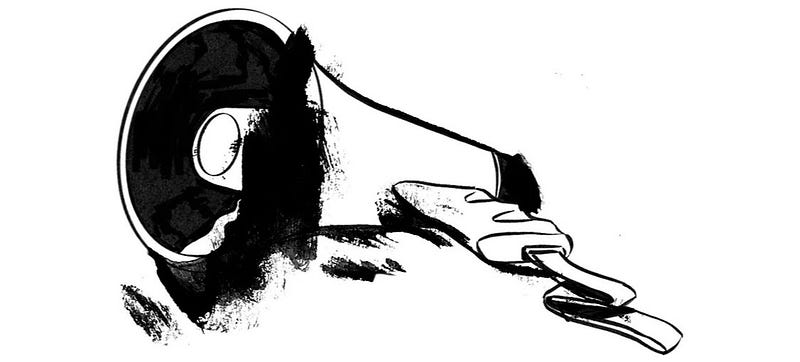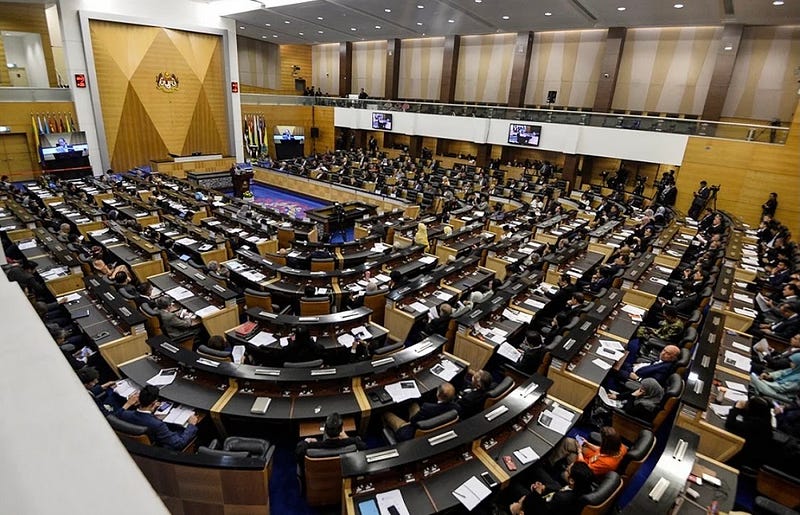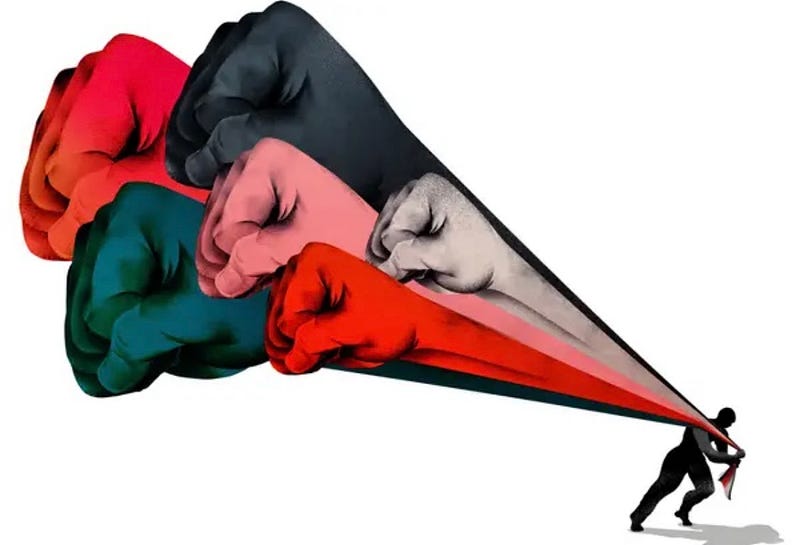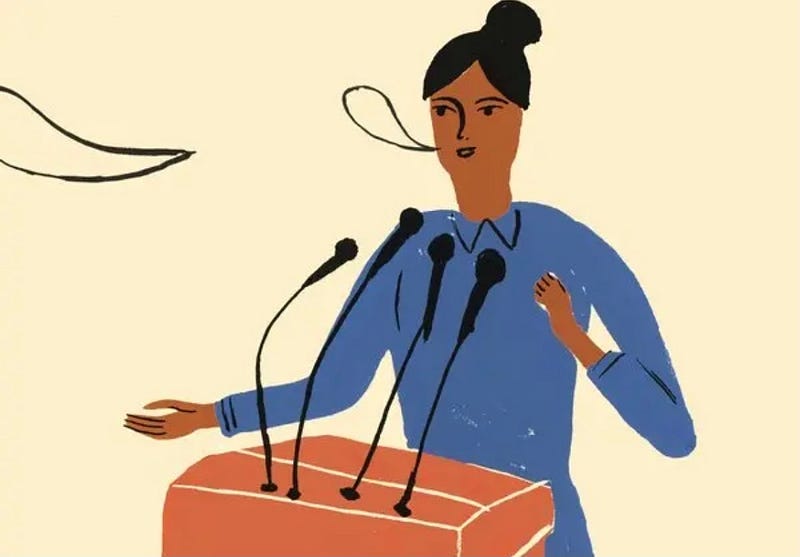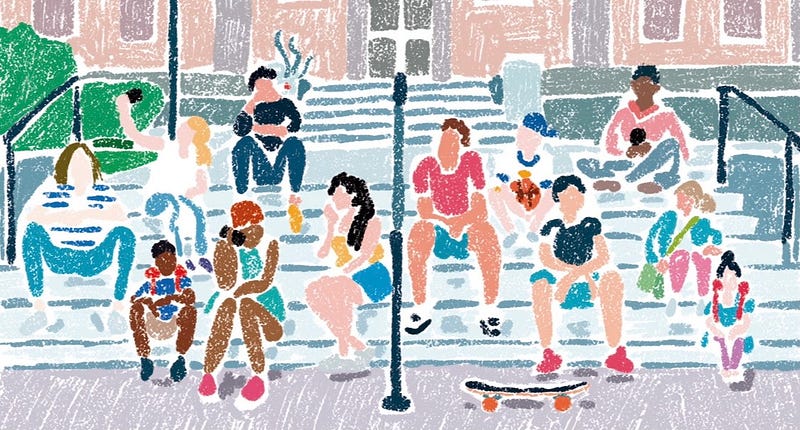The Anguish of Malaysian Youths
The stodgy arena of politics is inarguably designed to demotivate us, particularly in an entrenched culture of elitism, cronyism and…
The stodgy arena of politics is inarguably designed to demotivate us, particularly in an entrenched culture of elitism, cronyism and gerontocracy. The corridors of power in Malaysia have evidently been dominated by the same personalities for decades. These very people consistently adhere to the narrative that contemporary society is rife with political apathy among youth leading to a general scepticism of our capabilities. It has become a popular belief that the youth lack the maturity, experience and knowledge to make informed decisions. A recent survey by public opinion pollster Merdeka Center revealed that more than two-thirds of youths have no interest in participating in politics. Some of the reasons given include the “complicated” nature of politics and how they “can’t understand what’s going on” and dismal views saying politicians “don’t care what people like me think”. This attitude of indifference is clearly in favour of the ruling power, hampering any substantial change along the way. However, merely interpreting this as evidence of apathy disregards the complexity of such negative sentiments and ignores the structural and organizational barriers young people face to achieve a healthy electoral participation.
The past few years have been flooded with political pandemonium and national scandals creating a prominent chasm filled with broken hopes and defeated individuals with only
a sense of despair. Are young people really to blame for their lukewarm enthusiasm and lack of trust in politicians when a large portion of them strongly feel that politicians are not representing their needs but have only failed us through their fraudulence and greed? It is only natural for the youth to feel disillusioned and jaded with the current political climate because of the apparent disconnect between the prevailing system and political institutions in the lives of Malaysian individuals. Writing in New Statesman, Russell Brand observes “Apathy is a rational reaction to a system that no longer represents, hears or addresses the vast majority of people. A system that is apathetic, in fact, to the needs of the people it was designed to serve”.
With the emergence of the Internet however, there has been an unprecedented rise in the participation of young Malaysians in the country’s social affairs, inevitably dispelling the myth of apathy surrounding the younger generation. Social media is becoming a democratised space to spark necessary conversations and to mobilise radical change. Ever since the global pandemic has inundated us with precarity, the youths are becoming exceedingly critical of the government by using online platforms as a means of holding power accountable. More than anything, this reality depicts how young people are willing to engage politically but are turned off by the nature of the mainstream political discourse and feel excluded by the established parties. They are not disengaged by the issues affecting the nation, but rather the ineptitude of these policy makers addressing them.
Years and years of exhaustion and alienation has made the younger generation weary, frustrated and cynical. The quintessential Asian values we uphold tell us to always obey and respect those who are older than us. Eventually, this gives birth to a paternalistic and ageist lifestyle where the young are subjugated to be compliant and conform to the views of their elders. This is especially true in the political environment of many countries in Southeast Asia, particularly our own. Whenever we try to stand up for ourselves and express views that go against the beliefs of our elders, we are berated for being disrespectful and insulting. The deeply rooted hierarchies of the existing party structure has granted the political veterans of our country the privilege of decision making thus sidelining the change makers of the future, the youths. Younger members often find that the ascension through the ranks of the political ladder are often impeded as ‘old’ personalities are seen as more ‘experienced’ and ‘credible’. They find it difficult to challenge existing party structures and have no choice but to give way for older but not necessarily more competent candidates. A devastating flaw indeed; the inability to differentiate age and competence as two entirely separate matters in a system of governance.
The passionate and zestful Member of Parliament, Syed Saddiq, was often ridiculed and belittled by senior politicians in Parliament, which further substantiates my argument that older politicians typically disregard and abandon the needs and perceptions of the youths. Besides, these sprightly political warlords are the very same people against the lowering of voting age, casually dismissing our generation as immature and indecisive. The data provided by the Electoral Commission shows how the Undi18 initiative would add 3.7 million voters to the electorate. Frankly, I believe it is out of fear of being voted out once and for all. It really is not surprising that young people can feel very disempowered and detached from formal political participation when they feel as if they will not be taken seriously and their voices will never be heard. A major proportion of young people have turned to civil society organisations and movements to channel their political participation.
Note that political parties and the formal democratic system is not the only key indicator in measuring the thorny issue of apathy. There are various conceptions to what “participation” actually means and entails.
There is a disheartening underrepresentation of youths in political decision making positions. The average age of Malaysian politicians is around 55 whereas the median age of the population is 29. That’s at least 3 decades apart. 30 years is a very long time and these are the people that we expect to represent our dire concerns. Now, how can we really expect our lawmakers to empathise with the youth and come to understand their view of the world? We barely have enough youth representation in Parliament and even more so for women. We hardly ever hear distressing issues like sexual harassment and female genital mutilaiton ever being debated upon. The cultural miasma of fear and anxiety is surrounding urban youths as they are facing a bleak future in an already fragile economy. High rates of unemployment, low wages and rising living costs are some of the pervasive problems that desperately require government action. Such prevalent issues ultimately lead to youth disenchantment, forcing them to adopt a stance to disengage with mainstream politics because their political confidence has been ground down by the government’s lackadaisical attitude.
The faulty infrastructure of democracy in our country has unfortunately allowed the government to use draconian and archaic laws, manipulating public discourse and clamping down the freedom of expression in the country. Thus, a portion of online media has slowly grown reticent in the face of legal pressure. However, the youths are increasingly becoming less susceptible to blindly accept the mainstream political narratives. We are witnessing an uptick in youth led movements and protests fuelled by utter disdain of the political scene. Protestors are often called in for questioning and face legal pressure in hopes that they grow reticent and intimidated in order for the autocrats to impose conformity and augmentate their authority. I find it incredulously ironic that our political appetite is grossly mischaracterized in the name of “apathy”, yet our freedoms are infringed upon and criticisms suppressed the minute we try to get involved.
The possibilities and opportunities to engage in governance and partake in democratic processes in politics rely largely on one’s socio-economic background. A lot of young people envisage politics and shape their ideas on policies from discussions at home. Middle class individuals — typically with parents of highly paid professions — grew up with certain privileges of being out of touch with issues that do not concern them, particularly revolving around money and the economy. These young individuals are able to afford being apathetic where many are not able to due to their social standing. From a different vantage point, many of the youths engaging in political affairs through organisations and volunteering are highly skilled, educated and generally more confident. They do not have much to lose when it comes to challenging the status quo, unlike the ones coming from a vulnerable and financially unstable background. Disadvantaged young people have a harder time participating in the ghastly realm of politics as they have far more important basic needs to meet. They feel depleted and frayed by the systemic issues enveloping the country, knowing they are not powerful enough to strike a change. Lack of reliable access to the Internet — especially those living in rural areas — impedes the youths from enjoying equal access to information to national affairs nor to participate in any movements.
What this generation needs is a reshaping of how we look at politics and completely renounce the current paradigm. We have all suffered enough from the consequences of a passive and non-inclusive political system fostering an aversion to it. It is time to remove the word “apathy” from our lexicon and ask ourselves why we care so little about young people, the very pulse of political participation, that we allow them to feel so excluded. Despite feeling estranged and recognising that the system has not built them in mind, the youths still manage to get involved in community projects and online campaigns. Part of the reason for the infamous youth apathy stems from the highly formalised and complex model of democratic systems inherent to policy making. Politics have been made as confusing and complex as possible so that people feel intimidated and alien towards it, allowing centuries of politicians to maintain the oppressive mask of elitism and upper class. To counteract this veil of complication, we must also start providing young people with an unbiased political education to enhance political literacy. An informed and critical citizenry is the dynamic force of a progressive nation. Opportunities for the youth to contribute to the framing of national policies through direct dialogues with lawmakers should most definitely be encouraged to improve representation beyond tokenism. There needs to be an ambitious and concerted effort in amalgamating the concerns of the youth with government action to treat the political fatigue enveloping the country, and achieve a vivid and resilient democracy. Display your patriotism, demonstrate your courage and live in united idealism in formulating a greater change.
[Written by Cassandra Marcos]


